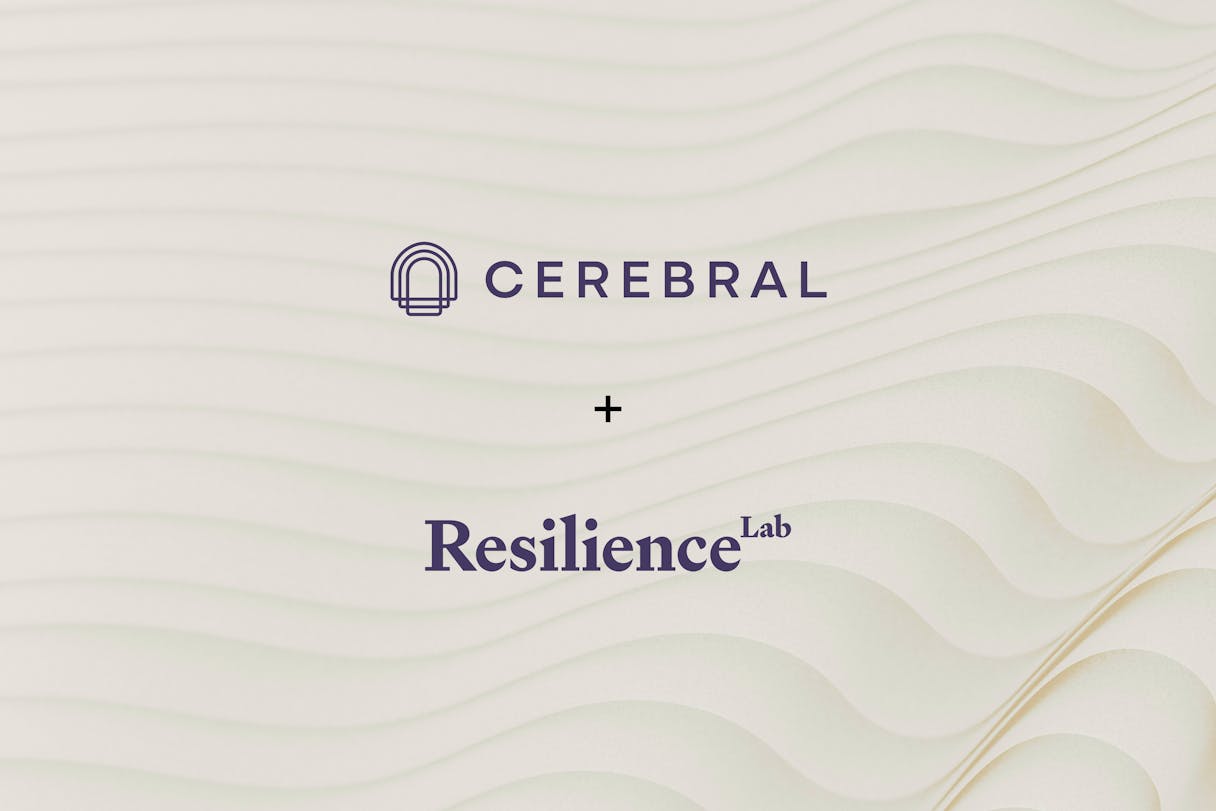The Way Forward for Mental Healthcare: A Message from Dr. David Mou, CEO, Cerebral
When I was training as a psychiatrist, my primary job was to listen. Since taking over as CEO of Cerebral in May, I’ve listened to many stakeholders – patients, employees, health insurance companies, regulators, the media and others. And I wanted to share some of the key learnings I have absorbed during this period.
It is clear that the mental health care system as we know it is broken – beset by a lack of access, a shortage of psychiatrists and other caregivers in broad swaths of the country, and widespread stigma attached to treatment that prevents people with mental illnesses from getting the care they so desperately need. Right now, too many Americans who need help are instead shuffled through the penal system, end up in homeless shelters or out on the street.
It will take a broad alignment among many to fix these problems. But the journey begins with humility, openness to continuous improvement, and a commitment to using data and measurement to gauge clinical quality and deliver the best possible care. This sacred commitment is one that every team member Cerebral has made.
That said, we must and will do better. This is a new era at Cerebral, and we are committed to a better future.
Putting patients at the core of what we do
The well-being of our patients comes first, bar none. Many of our patients suffer from serious mental illnesses, and many come to us with suicidal thoughts and behaviors, and they have nowhere else to turn. Many clinics actively avoid patients with history of suicidal thinking, and stop providing care once patients reveal their past struggles. We take pride in supporting these vulnerable patients.
To meet the growing demand for care, we must grow sustainably, market responsibly, and double down on our focus of delivering high-quality care. Clinicians must be in leadership roles for healthcare startups, as they are at Cerebral, so that the clinical perspective is taken into account for major decisions in every corner of the company.
As we move forward, here are some of the things I am committed to changing to not only better Cerebral but mental health care overall.
We are expanding our internal infrastructure and internal safeguards to prioritize our most vulnerable patients, especially where suicide is a risk. This includes close oversight by clinical staff who have been specially trained to recognize signs of suicidality. We have also used machine learning to better screen patients who are at risk, and connect them to crisis response specialists within minutes.
At the same time, we are improving our ID verification system, ensuring all patients' identities and addresses are correct and valid, and that no one under the age of 18 is treated by Cerebral. We have reinforced our manual verification procedures and deployed state of the art software to accomplish this.
We are also reallocating resources from growth marketing to clinical quality efforts and patient experience to ensure the best possible clinical outcomes. We have been able to improve the patient experience with quicker response times and a seamless cancellation process.
Addressing the bigger picture
We believe that a comprehensive review is essential, and so we established a Quality Commission to conduct a detailed review of our performance, and we have invited external parties to study our operations. Just as we will listen to patients and our own clinicians, we will turn to leading industry experts and seasoned practitioners for actionable counsel.
None of this is easy. But it is necessary to reinforce our mission of democratizing mental health care for all, putting patients at the center of everything we do, and ensuring Cerebral’s processes are world-class. Additionally, as we announced in May, in preparation for regulatory changes, we will no longer be prescribing controlled substances to new patients, and are actively working to taper existing patients off these medications and provide alternative treatment options.
As I noted earlier, there is a crisis of mental health care access in this country. Telehealth has a vital role to play in addressing this need, especially by utilizing data and new technology in a profession that lacks much-needed measurement and a sufficient number of providers.
The answer is telehealth and traditional care, not one or the other
Although telehealth improves access, there is not a binary choice between our field and traditional mental health care providers. We work closely with psychiatrists and others in brick-and-mortar facilities and will keep doing so in the future. The goal here is to meet patients where they are, relieving them of one less burden in their hour of need.
As a matter of fact, nearly one-third of Americans live in an area that has a shortage of mental health care professionals and 60 percent of all U.S. counties – including 80 percent of all rural counties – do not have a single psychiatrist.
The deficiencies of our health care system heighten the risk of suicide, which is the second leading cause of death among Americans aged 10 to 14, and 25 to 34, according to the National Institute of Mental Health. We are not perfect in every case, but we are trying to address this national tragedy by increasing access for those who have historically been disenfranchised in terms of care.
Measuring outcomes and moving forward
The data gathered by Cerebral underscores how isolated patients felt before the advent of telehealth. Since our inception, we have treated over half a million patients, and two-thirds of these patients have never had the privilege of seeking mental health care before, despite struggling with mental illnesses such as depression, anxiety, and PTSD.
Telehealth is also helping patients who historically have been disenfranchised or lack the resources for traditional treatment; the majority of our patients have salaries below the national average. What’s more, we have a diversity of clinicians, nearly half of whom identify as non-white, further helping patients find someone with whom they feel most comfortable.
Finally, Cerebral is changing the landscape with measurement and data, not just improving our own performance, but helping the entire mental health care field establish benchmarks that can improve clinical quality while reducing costs. Machine learning at Cerebral can help quickly identify messages from suicidal patients requiring escalation, providing clinicians with an additional opportunity to intervene.
We work closely with payers to identify at-risk patients and provide them with extra care in order to prevent unnecessary emergency room visits. Collectively, we are setting the stage for value-based care in behavioral health.
Other fields, like cancer treatment, have employed precision medicine approaches to improve quality of care, and there is no reason mental health care can’t do the same.
As we move forward and work toward these goals, I want to reiterate that we can and will do better. The well-being of our patients depends on it.
As a psychiatrist, entrepreneur, and Cerebral’s CEO, I have a moral responsibility to ensure that telehealth plays a critical role in helping millions of Americans get the care they so desperately need.

Our Care: The Resilience Methodology

A New Era of Mental Healthcare: How Cerebral Is Expanding High-Quality, Personalized Care

Cerebral Partners with San Antonio Spurs

Call 911 if you’re having a
mental health emergency
Text Home to 741-741 if you're in emotional
distress and need immediate support
Call or text 988 Suicide &
Crisis Lifeline. Chat service
is available at 988lifeline.org.